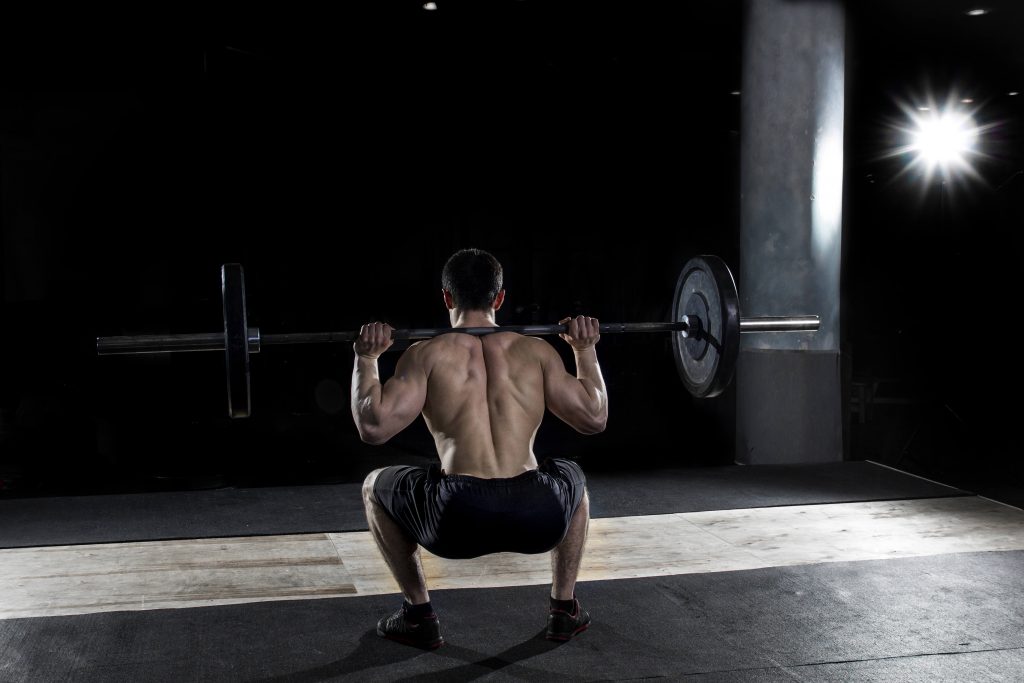Squats are very beneficial, and they are a great workout to add to your daily exercise routine. When people think of squats, they typically think of toning legs and glutes. However, squats can actually benefit many parts of the body in different ways. Strong legs are important for supporting the entire body, and runners can get great results from squats by shedding extra weight and increasing body mobility. Squats can also be performed in order to build muscle or prevent injuries. For more information on how adding squats to your exercise regimen can improve your physical performance, give our office a call today.
The health benefits of proper squat techniques:
Squats are a great way to build muscle, increase metabolism, and burn calories. Your legs consist of some of the biggest muscles in the body, and it is important to exercise them on a regular basis. Along with walking and jogging, squats are a simple way to get an ideal leg workout. Whether you decide to use added weights or not, squats can be extremely effective when done properly. There are a vast array of health benefits associated with squats, including:
- Toning the legs, abs, and butt
- Increasing your core strength
- Burning fat
- Reducing cellulite
- Increasing flexibility
- Improving circulation
- Improving posture
- Helping to prevent sports or workplace injuries
- Allowing for a low-impact exercise
Why squats are important in an exercise routine:
This exercise is simple, yet effective. Some people are apprehensive if they have had issues with their knees in the past, as it is a common misconception that squats are hard on the knees. In reality, squats can actually help improve knee stability and connective tissue strength when they are performed properly. Many physical therapists will actually recommend squats as a safe and easy exercise for people of all ages, as it is a great way to burn fat and increase strength.
If you are an athlete who is prone to knee or leg injuries, squats can be especially effective for you. They can help boost your sports performance by increasing your stamina and strengthening your leg muscles.
Simple steps for the perfect squat:
When performed correctly, squats shouldn’t put any unnecessary strain on your legs or knees. By following these simple steps, you’ll be able to do squats properly and without discomfort:
- Start with a warm-up. Do a few stretches to loosen up your thigh and calf muscles, and then stretch your arms and back. This will warm your body up and prevent tight muscles from stretching too far, thus reducing the strain on the leg muscles and joints.
- Stand with your feet slightly wider than shoulder-width apart. This is the start position.
- Slowly bend the knees, hips, and ankles as you lower the bottom half of your body to reach a comfortable 90-degree angle. Keep your back in a neutral position and make sure your knees are centered over your feet. This is the squat position.
- Remember to breathe in as you lower the bottom half of your body in the squat position, and out as you return to the start position. Keep the core engaged as you return to the start position.
- Repeat the squat 15 to 20 times and make sure to integrate this workout into your exercise routine 2-3 times a week in order to see the best results.
If you are considering adding squats to your comprehensive fitness routine, our physical therapists can help you create the perfect exercise plan to reach your goals. Whether you are recovering from a mobility injury or working on strengthening your leg muscles, this low-impact exercise can benefit you. Schedule a consultation with one of our physical therapists today to discuss how our personalized treatment and exercise plans can help you reach your fitness goals!
Contact Sports & Ortho Physical Therapy & Sports Medicine in Chicago & Glenview, IL, by clicking here, or request a consult online today.




